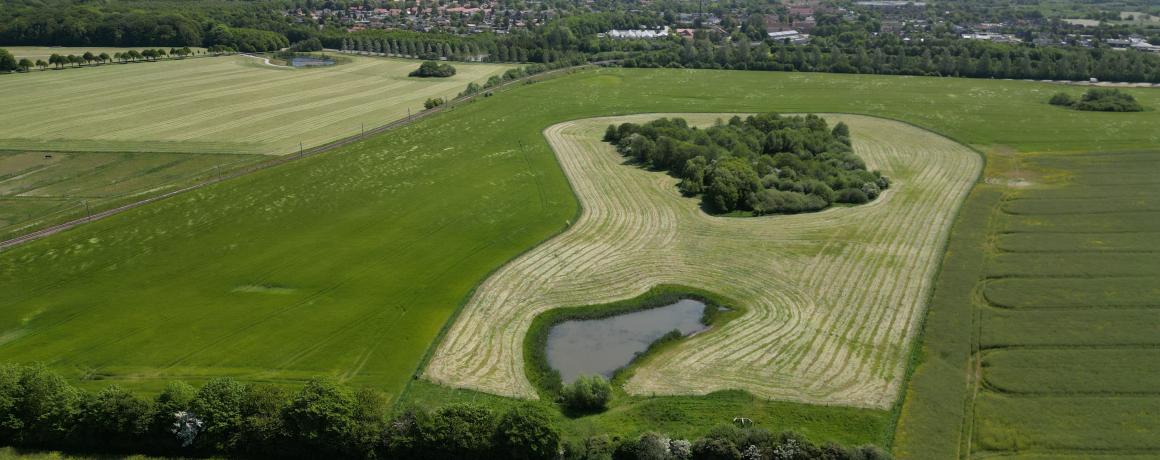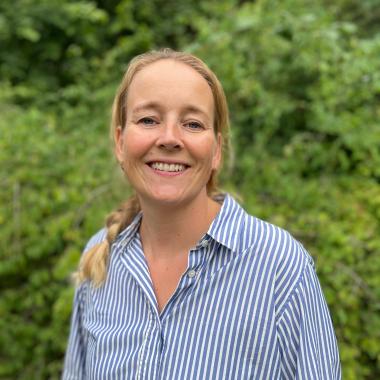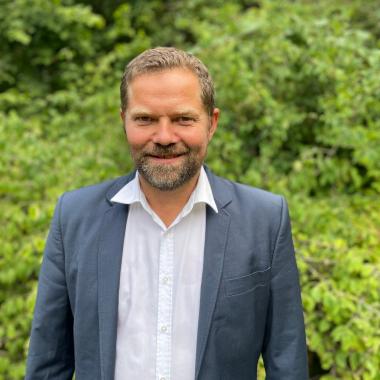Welcome to the Danish Climate Forest Fund

About the Danish Climate Forest Fund
The Danish Climate Forest Fund (Klimaskovfonden) is an independent, state-owned administrative body under the Ministry of the Environment of Denmark, and is managed by an independent board appointed by various ministries.
The Danish Climate Forest Fund was set up by the Danish Parliament with cross-party support to plant trees and transform low-lying soil into natural areas and wetlands. By using nature’s own methods for storing CO2, the fund addresses climate issues and reaches the target set out by Denmark of reducing its CO2 emissions as stipulated by the Paris Agreement. The fund also creates opportunities for anyone wishing to contribute to Danish climate action.
The Danish Climate Forest Fund works to boost the green agenda by undertaking forest and low-lying soil projects across Denmark to allow everyone to enjoy more nature, greater biodiversity and cleaner drinking water – in addition to a measurable reduction of greenhouse gases.
Official Purpose of the fund
The Danish Climate Forest Fund was established by a law passed by the Danish Parliament for the purpose of promoting and funding cost-effective afforestation and extraction of low-lying soil in order to reduce CO2 emissions and thereby reach Danish climate targets.
The fund has also been tasked with being mindful of synergy effects in its climate projects, e.g. biodiversity, drinking water, nature, environment, outdoor activities and cultural heritage.
In order to fund its climate projects, the fund sells CO2 credits from project CO2 reductions. The Danish Climate Forest Fund thereby gives the Danish population and business community the opportunity to contribute to the fund.
Contribution to Climate Action
Everyone is able to contribute to Danish climate action by providing a voluntary contribution to the national climate action, which is in addition to any reductions and compensation in his own value chain.
CO2 credits from Danish Climate Forest Fund projects are included in the Danish national climate accounts. Businesses are welcome to state that they contribute to Danish climate action and use this in their marketing, but they are not permitted to include it in their climate accounts and reporting.
Contribution is a relatively new product category in the trade in CO2 credits. In the regulated market, contribution was introduced at COP27 in Article 6.4 under the name of ‘mitigation contribution’. The voluntary market has introduced the GHG protocol in the GHG Land Sector and Removal Guidance – September draft from 2022 as ‘contribution credits/targets’. We expect that contribution products will increasingly gain a footing and recognition in the voluntary CO2 market in the coming years as well as potentially becoming recognised under SBTi in the Beyond Value Chain Mitigation category.
The fund’s Projects
The Danish Climate Forest Fund finances projects across Denmark on both privately and publicly owned land. By calling for applications on market terms, the Danish Climate Forest Fund invites private and public landowners to propose their land and apply for support from the fund for climate projects in these areas.
The Danish Climate Forest Fund’s afforestation projects will be given the status of forest reserves and low-lying areas as a permanent natural condition with natural water levels. Projects will therefore be designed to provide long-term, cost-effective climate effects many years into the future.
When the climate projects have been established, the fund will continually be monitoring CO2 sequestration which is recorded in a public register. CO2 effects will also be verified by an external third party so that the fund ensures project transparency and credibility.
The fund has drawn up the first (and only) Danish standards for afforestation and withdrawal of low-lying land in line with internationally acknowledged standards such as VCS and Gold Standard.
Questions? Please contact us


